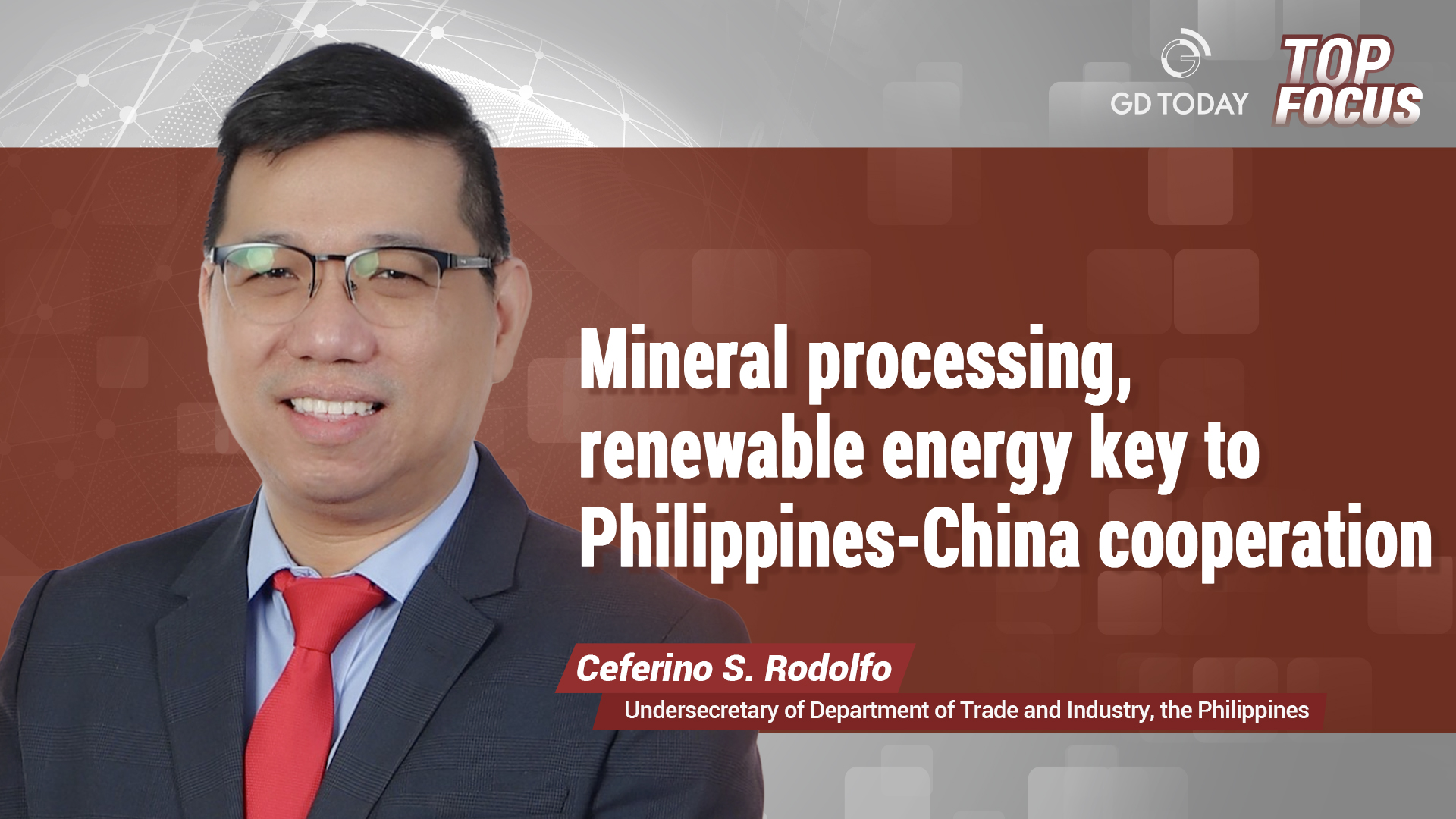“The Belt and Road Initiative (BRI) is not just about building physical connections, but more importantly, also establishing and strengthening collaborations in supply chains, industrialization, and investment,” said Ceferino S. Rodolfo, Undersecretary of the Department of Trade and Industry (DTI), the Philippines, in a recent interview with GDToday at the 2023 China Greater Bay Area-ASEAN Economic Cooperation (Qianhai) Forum in Shenzhen, south China’s Guangdong province.

Rodolfo noted that the Philippine Export Development Plan (PEDP) 2023-2028, which is a comprehensive plan formulated by the DTI and launched in June 2023 to boost the competitiveness of the country’s export industry, can form synergies with the BRI.
“When cooperating with China under the BRI, we are laying stress not only on infrastructure development but also on industrialization and technological collaboration, which can help the Philippines move up the global value chains,” Rodolfo said.
In addition, Rodolfo said that the Philippines regards China as an important pillar of its export development. “The commodities we export to China are mainly electronic products, tropical fruits, and minerals including nickel, copper, and cobalt that are the precursor materials used in electric vehicle batteries,” he said.
According to Rodolfo, the minerals the Philippines currently exports are mainly unprocessed metal ores. “We are now attracting Chinese companies to invest in mineral processing facilities in the Philippines, because China is advanced in technologies, such as high-pressure acid leaching of lateritic nickel ores,” he elaborated.
“Other sectors where we are looking for more cooperation with China include agriculture, electronics, and renewable energy,” Rodolfo said.
As for renewable energy, Rodolfo told GDToday that the Philippine government is very positive about the energy transition since electricity in the country is expensive due to the nation’s reliance on imported coal and diesel to power up most parts of the country and the lack of government subsidies in the power sector.
“In particular, we are open to projects regarding offshore wind farms, floating offshore wind farms, solar power plants, and floating solar panels. And globally, China has the companies that are tops in terms of related technologies,” Rodolfo said.
He noted that with the state visit to China by Philippine President Ferdinand Romualdez Marcos Jr. in January 2023, strengthened economic cooperation between the sides is expected in the future.
“The Guangdong-Hong Kong-Macao Greater Bay Area, with its geographical proximity to Southeast Asia, will be the contact point for the enhanced collaboration between the two nations,” Rodolfo said.
Reporter | Lydia Liu
Poster designer | Mia
Editor | Olivia Yang, Jasmine, James
Liang Manxin (intern) also contributed to the story.
















